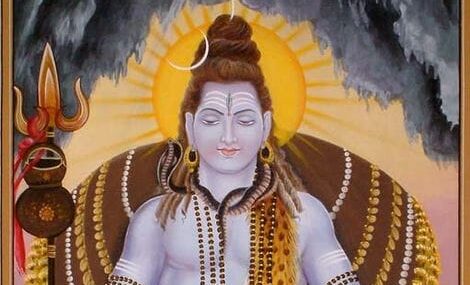
In the following short video course, we will explore the Yoga Sutras of Patanjali in their core essence from the first important Sutras that define the teaching. This consists of the first sixteen Sutras of its nearly two hundred Sutras, which provide the foundation for the entire text. If you know and understand these sixteen Sutras, you will understand the meaning and goal of the Yoga Sutras overall. If you don’t understand them then you will not have the foundation to understand the text as a whole. An in-depth examination of the first sixteen Sutras is necessary for illuminating all the subsequent Sutras, with reference to the original Sanskrit and the the deep meanings of the specific Sanskrit terms involved. These sixteen sutras explain what Yoga is in essence, its ultimate goal (Kaivalya or realization of the Purusha), its view of the workings of the mind on all levels gross and subtle (chitta) and how to transcend these to the state of Self-realization. It explains the meaning of such key Yoga terms as Samadhi, Nirodha, Purusha and, most importatnly, what the real practice of Yoga (abhyasa) consists of, notably relative to the two prime factors discrimination (Viveka) between Self and not-Self and detachment (Vairagya). from body, mind and external world We have tried to present this essence of the Yoga Sutras in clear and relevant terms, so that the contemporary reader, wishing to view Yoga at a deeper level can access to it in an authentic yet practical and relevant manner towards their own understanding of Self and Universe.
The Yoga Sutras of the Rishi Patanjali remains one of the most important texts on Yoga, widely translated, studied and commented upon, and undergoing a new examination today in the developing global Yoga movement. Yet it also remains one of the most misinterpreted of all Yoga texts. There are several reasons for this, starting with the fact that the text consists of short, condensed and cryptic aphorisms which require a experiential commentary to make sense of in all their dimensions. Patanjali teaches the Vedic tradition of Yoga. This existed long before him in Vedic texts from the Rigveda consisting of the mantras of the Rishis, to the Upanishads, to the Bhagavad Gita of Sri Krishna, who is said to be the Lord of Yoga, Yogeshvara, and the Avatar of Yoga, Yogavatara. Yet Patanjali doesn’t explain this antecedent Yoga tradition in detail, as such a short Sutra work would not have the scope to do so. Sutra texts are summary aphorisms not detailed explications which come in the commentaries. In addition, those who comment on the Yoga Sutras today rarely know the implications of its Sanskrit terms according to their traditional usage. The terms used in Yoga Sutras have a long history and application and are not unique to the text, and can have different meanings in different applications starting with the term Yoga itself. Most interpretations of Yoga Sutras today center on asana and related practices focusing on health and the physical body, which are important in a preliminary way, but the definition of Yoga in the Sutras is Nirvikalpa Samadhi as Self-realization beyond body and mind. Yet the meaning of Samadhi and its direct experience is seldom known or examined in depth. We try to do that in our approach here.
My interpretation of Yoga is based upon my more than fifty year long study of Vedic, Yogic and Vedantic texts in the original Sanskrit, including the Rigveda, Upanishads, Gita and Mahabharata, to the Yoga Vasishtha, and the related schools of Vedanta, Tantra and Samkhya. It reflects my connections with great modern Yoga-Vedanta gurus and lineages as those of Bhagavan Ramana Maharshi, Kavyakantha Ganapati Muni, Sadguru Sivananda Murty, Sri Anandamayi Ma, Sri Aurobindo, Sri Anirvan, and Swami Veda Bharati. In our study here, we approach Yoga as a science of Consciousness rooted in calming the mind, an inner psychology that is relevant to all for right awareness and clear perception. As such, this yogic science of Consciousness provides the inner dimension to complement the outer dimension of modern science, so we can understand the universe not only outside of ourselves but also within ourselves. Yoga leads us to the Atman or Purusha, the inner Self of the entire universe, which is our true nature and the Divine essence of all, called Brahman in Vedanta. Yoga Sutras is a journey into your inner Self and its unity with the Self-aware Universe. May you discover your own true essence in the essence of the Yoga Sutras! May the great Rishis and Yogis guide you! Hari OM Tat Sat! Sri Yoga Purushaya Namah!